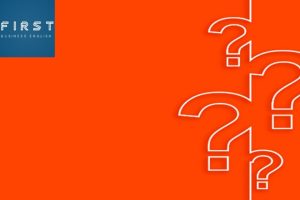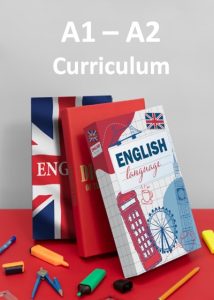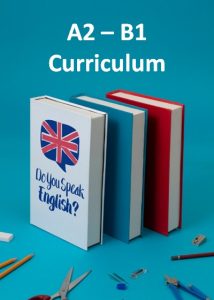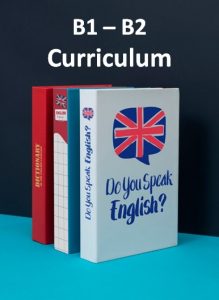
What Are Nouns & Pronouns in the English Language
- Posted by Ryan Anthony
- Categories Blog
- Date January 17, 2025
So what are nouns and pronouns? First Business English has provided here all you need to know about getting started with nouns and pronouns in the English Language. Nouns and pronouns are both parts of speech in the English language, but there are some key differences between them. We will first determine what a noun is, then what a pronoun is and then finish with the difference between both. We also provide a definition and explanation of each as well as practical examples.
What is a Noun?
A noun is a word that represents a person, place, thing, idea, or concept. Nouns are one of the fundamental parts of speech in the English language and are often the subject of a sentence or the object of a verb. Some examples of nouns include “dog”, “cat”, “chair”, “table”, “love”, “happiness”, “New York”, and “teacher”. Nouns can be singular or plural, and they can be common or proper, concrete or abstract, countable or uncountable, and possessive or non-possessive.
Examples of Nouns:
Here are some examples of nouns used in the English language.
- Person: John, Mary, doctor, teacher
- Place: New York, park, restaurant, school
- Thing: car, book, phone, computer
- Idea: love, freedom, justice, happiness
- Animal: dog, cat, bird, fish
- Food: pizza, burger, salad, soup
- Object: chair, table, lamp, pen
- Event: party, concert, wedding, graduation
- Time: day, year, hour, minute
Example of Noun Sentences:
Here are some examples sentences of nouns used in the English language.
- Person: David is my brother. The teacher gave us a homework assignment.
- Place: I have never been to Paris. The beach is my favourite place to relax.
- Thing: I need a new phone. The book on the shelf is very interesting.
- Idea: Love is a wonderful feeling. Honesty is always the best policy.
- Animal: My dog loves to play fetch. The bird is flying high in the sky.
- Food: I want to eat a pizza for dinner. She loves to make salads.
- Object: The chair is comfortable. The table is made of wood.
- Event: We had a great time at the party. The concert was amazing.
- Time: I woke up early this morning. I can’t believe it’s already July.
What is a Pronoun?
A pronoun is a word that takes the place of a noun or a noun phrase in a sentence. Pronouns are used to avoid repeating the same noun or noun phrase multiple times, and they can refer to people, animals, things, or ideas. Some examples of pronouns include “he”, “she”, “it”, “they”, “you”, “me”, “him”, “her”, “us”, and “them”. Pronouns can also be divided into different categories, such as personal pronouns, possessive pronouns, reflexive pronouns, demonstrative pronouns, interrogative pronouns, and relative pronouns.
Examples of Pronouns:
Here are some examples of pronouns used in the English language.
- Personal pronouns: I, you, he, she, it, we, they
- Possessive pronouns: mine, yours, his, hers, its, ours, theirs
- Reflexive pronouns: myself, yourself, himself, herself, itself, ourselves, themselves
- Demonstrative pronouns: this, that, these, those
- Interrogative pronouns: who, whom, whose, what, which
- Relative pronouns: who, whom, whose, which, that
Example of Pronoun Sentences:
Here are some examples of sentences using these pronouns.
- Personal pronouns: She is going to the store. They are watching a movie.
- Possessive pronouns: The car is mine. That book is hers.
- Reflexive pronouns: He hurt himself playing soccer. We made the cake ourselves.
- Demonstrative pronouns: This is my favourite song. Those are the shoes I want to buy.
- Interrogative pronouns: Who is at the door? What time is it?
- Relative pronouns: The book that I am reading is really good. The man who helped me was very kind.
The Difference Between Nouns & Pronouns
First Business English has provided here the difference between nouns and pronouns. If you are still thinking what nouns and pronouns are and how to use them correctly when speaking English, First Business English has provided explanations here to help you determine the difference.
- Function: Nouns are words that represent a person, place, thing, or idea, while pronouns are words that take the place of a noun or a noun phrase in a sentence.
- Usage: Nouns are often used as the subject or object of a sentence, while pronouns are used to avoid repetition of a noun or noun phrase in a sentence.
- Specificity: Nouns are often specific and refer to a particular person, place, or thing, while pronouns can be more general and refer to any person, place, or thing.
- Modification: Nouns can be modified by adjectives and articles, while pronouns are typically not modified in the same way.
- Types: Nouns can be classified as common or proper, countable or uncountable, and concrete or abstract, while pronouns can be classified as personal, possessive, reflexive, demonstrative, interrogative, and relative.
While both nouns and pronouns refer to people, places, things, and ideas, nouns are the actual names of these entities, while pronouns are used to replace them in a sentence to avoid repetition.
About First Business English
First Business English is a premium business English language online education center that provides individuals and groups the opportunity to learn Business English that enhances their careers and lives through a structured Business English curriculum. Contact Us
Ryan Anthony is an enthusiastic, self-motivated, reliable Online Business English language tutor who is learner focused and highly adaptable. Bachelor of Business Studies Degree educated with extensive IT Support, Call Centre Management, Retail Management and English Language Teaching experience.
You may also like

The Pros And Cons Of Freelancing As A Career

The Effect Of Prices And The Cost Of Living




